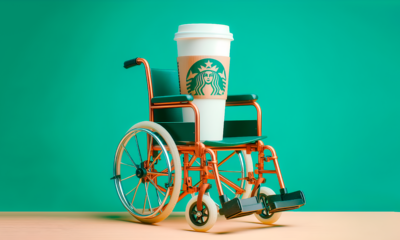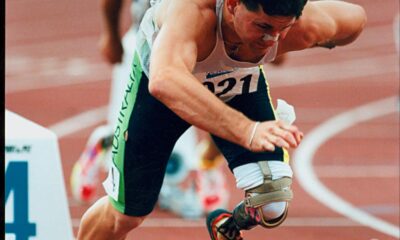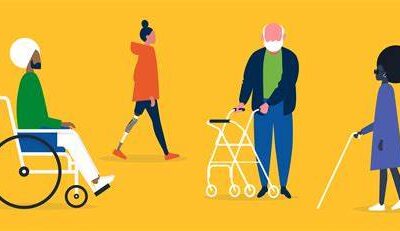Featured
Bakura Muhammad: Dreaming of Becoming a Broadcast Journalist
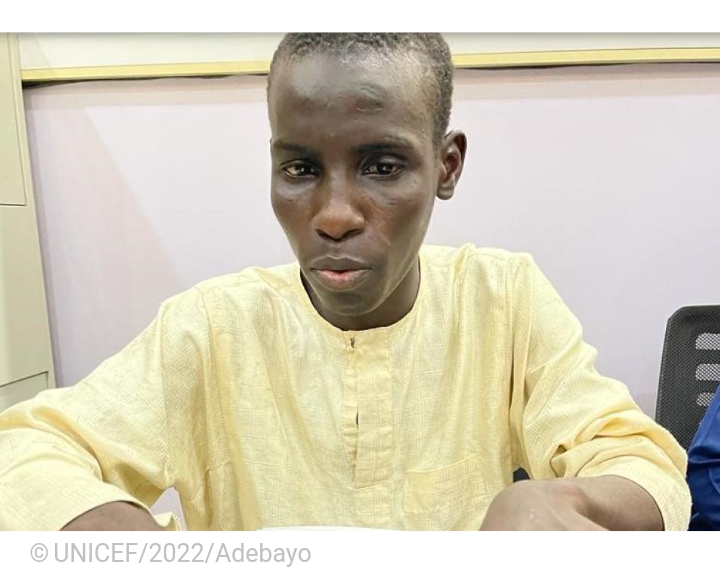
Bakura Muhammad is one of Goal Prime Organization Nigeria’s star anchors
Recently the disabled community in Nigeria‘s North-Eastern region has been growing more and more resilient. This has been helped further by the government’s interventions and training platforms created by non-profit organizations to help young people, especially teenagers, harness their talents and learn skills that will make them be part of positive change in society. Bakura Muhammad is just one teenager benefiting from this shift in Nigeria’s attitudes towards disabled people. He is a 15-year-old schoolboy who was born with blindness and lost his mother in infancy.
Apart from being a vulnerable child, Bakura grew up in a conflict-affected environment, and that nearly sabotage his dreams to become educated as he dreamed to be. But, his father foresaw a bright future for his son, so he made efforts to enrol him in school.
As Bakura puts it, “I have been blind for as long as I have been alive. I am my mum’s last child because she died about a month after giving birth to me. I was not enrolled in school until I was seven years. Some neighbours advised my father against enrolling me in school because they felt that I would be better off begging for alms. My father did not listen to them and I am very grateful for that.”
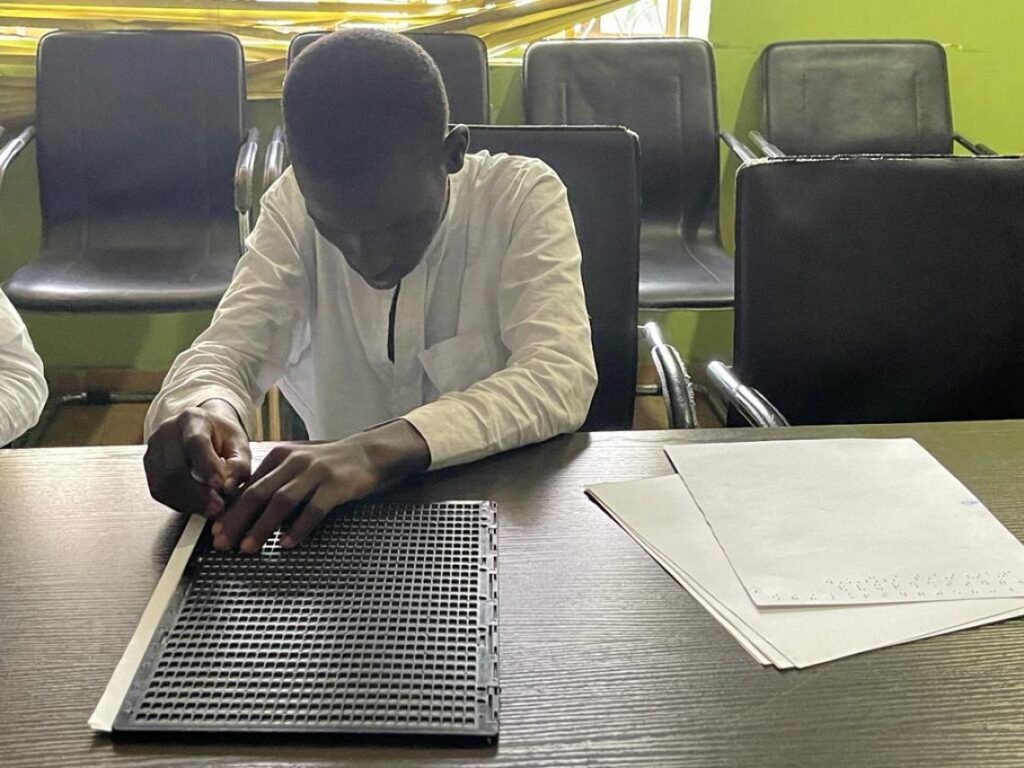
© Unicef
Bakura was also lucky enough to be selected by Goal Prime Organization Nigeria as one of the ‘Star Anchors’ of Da Rarrafe Yaro Kan Tashi, a UNICEF-supported children’s radio programme. That influenced his passion for broadcast journalism. But, through his father’s old transistor radio, he developed the habit of listening to and admiring some famous broadcast journalists. These included Nasiru Salisu Zango of Deutsche Welle (DW Hausa) and Ibrahim of the British Broadcasting Commission (BBC Hausa).
So, Bakura Muhammad moved another step closer to achieving his dream as he read the primetime news on Al-Ansaar Radio to commemorate World Children’s Day (2022) in Maiduguri, North-Eastern Nigeria.
“When I translated the news on the Braille sheet, my fears disappeared. I held the sheet in my hands and my confidence soared. God willing, I would love to work with the Cable Network News (CNN) or Voice of America (VOA) as a newscaster when I finish my education. In Nigeria, I can also work in the media and sensitization department of UNICEF.” Bakura said.
Despite having lost his vision, Bakura as a potential anchor has a promising future because he can lay his hands on a braille sheet of paper and read the news on the radio, so this is enough reason why his story needs to be told out there.
Featured
Alem Mumuni: Pedaling Beyond Limits to Empower Ghana

From his early struggles as a polio survivor in Ghana to becoming the nation’s first Paralympic cyclist, Alem Mumuni’s journey is not just one of personal triumph, but a relentless pursuit of empowerment for himself and countless others.
Born into a reality where disability was often met with limitations, Alem’s life took a dramatic turn at the age of two when he contracted polio. This left him without full use of his right leg. Yet, Alem’s spirit remained unbroken. Fuelled by the unwavering support of his family, particularly his persistent cousin, he defied expectations. Not only did he learn to walk again, but he also became the first child in his family to step through the schoolhouse doors.
Despite societal perceptions that often viewed disability as a hindrance, Alem embraced every opportunity. He actively participated in sports alongside his able-bodied peers, discovering a particular fondness for cycling. This seemingly ordinary activity became a source of liberation for Alem, offering him a sense of mobility and freedom that transcended his physical limitations. With unwavering dedication, he honed his skills on the bicycle, eventually setting his sights on the competitive arena of para-cycling.
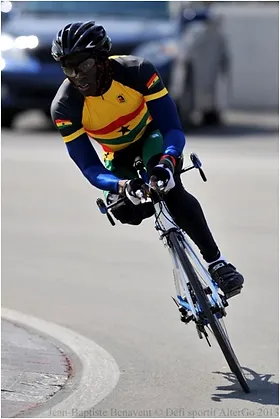
Alem’s unwavering determination culminated in a historic moment for Ghana in 2012. He qualified as the nation’s first Paralympic cyclist, earning a coveted spot at the London Paralympic Games. While illness hampered his performance at the Games, his mere presence was a groundbreaking feat. Alem’s participation on the global stage shattered stereotypes, proving that individuals with disabilities possessed immense capabilities waiting to be unleashed.
Returning to Ghana a flagbearer for change, Alem channeled his Paralympic experience into a force for good. He established the Alem Foundation, a platform dedicated to uplifting underprivileged children and families. Partnering with passionate individuals who shared his vision, Alem launched various initiatives focused on creating sustainable solutions for marginalized communities. These initiatives ranged from sponsoring children’s education to ensuring access to clean water and vital healthcare, empowering entire families to break free from the cycle of poverty.
Alem’s impact extends far beyond individual empowerment. He recognized the systemic barriers faced by people with disabilities in Ghana and became a fervent advocate for inclusivity and equal opportunities. Leveraging his platform and the connections he forged through sport, Alem championed policies and initiatives that promoted a more inclusive society. He envisioned a Ghana where individuals with disabilities were not just seen, but valued, empowered, and given the platform to thrive.
Even as Alem continues to build a lasting legacy, his unwavering commitment extends beyond personal accolades. He remains an inspiration for those facing adversity, a living testament to the power of perseverance. Alem’s story embodies the true meaning of resilience, proving that disability is not a limitation, but rather a catalyst for positive change and boundless potential.
In Alem Mumuni, we find a beacon of hope, a testament to the transformative power of sport, and a powerful reminder that the human spirit can overcome any obstacle. As he continues to pedal towards a brighter future, Alem leaves behind a legacy that illuminates pathways of possibility for generations to come, inspiring others to push beyond perceived limitations and embrace the boundless potential within themselves.
By: Yahuza Bawage
If you enjoyed reading this article, be sure to check out this other fascinating piece!
For the latest updates, Download P+us app available on Google App Store
Culture
Initiatives Empowering people with Albinism in Africa
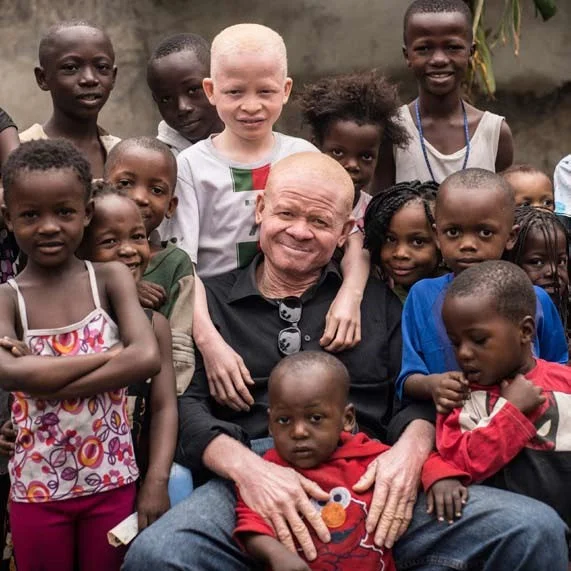
In the heart of Tanzania, a group faces a harsh reality: discrimination and violence due to albinism. Standing Voice, a British and Tanzanian NGO, is on a mission to change that. Founded by filmmaker Harry Freeland, the organization works tirelessly to improve the lives of people with albinism through healthcare, education, advocacy, and community development.
Freeland’s journey with albinism began with a documentary, “In the Shadow of the Sun.” Witnessing the struggles of people with albinism firsthand, particularly the high rate of skin cancer deaths due to lack of access to treatment, sparked his passion to make a difference.
Standing Voice’s approach is centered on empowerment. They train local healthcare professionals to provide crucial dermatological care, including skin cancer screening and prevention. The organization also distributes specially formulated sunscreen, Kilimanjaro Sunscreen (KiliSun), to protect against the harsh African sun.
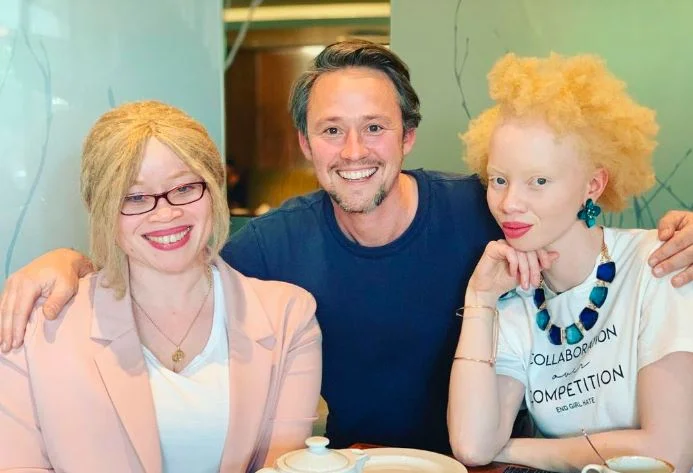
@harry_freeland Instagram
Education is another key area of focus. Many children with albinism struggle in school due to poor vision. Standing Voice’s Vision Programme provides eye exams, distributes corrective lenses, and educates teachers on how to support students with albinism. Breaking the cycle of educational disadvantage is crucial for creating a brighter future.
Economic empowerment is also part of the equation. Standing Voice offers training and employment opportunities, equipping people with albinism with the tools they need to build self-sufficiency and overcome societal barriers.
Advocacy is another vital tool. Standing Voice works with local and international organizations to raise awareness about albinism and fight for the rights of this marginalized group. They believe that integrating people with albinism into society is key to ending discrimination and violence.
A recent partnership with the Pierre Fabre Foundation has further bolstered Standing Voice’s efforts. This collaboration allows the organization to expand its life-saving Skin Cancer Prevention Programme, reaching more people across Tanzania and beyond.
Looking ahead, Standing Voice has ambitious plans. They aim to expand their programs into new regions, train community members as advocates, and continue their important work in education and economic empowerment. Their ultimate goal: a future where people with albinism are not just accepted, but celebrated for their unique qualities.
While Standing Voice tackles the challenges in East Africa, another initiative is fostering a positive transformation further south. In South Africa, The Musicians with Disability and Albinism Project provides a unique platform for differently-abled musicians and people living with albinism. Funded by the National Arts Council, this project empowers these communities through music creation and performance.
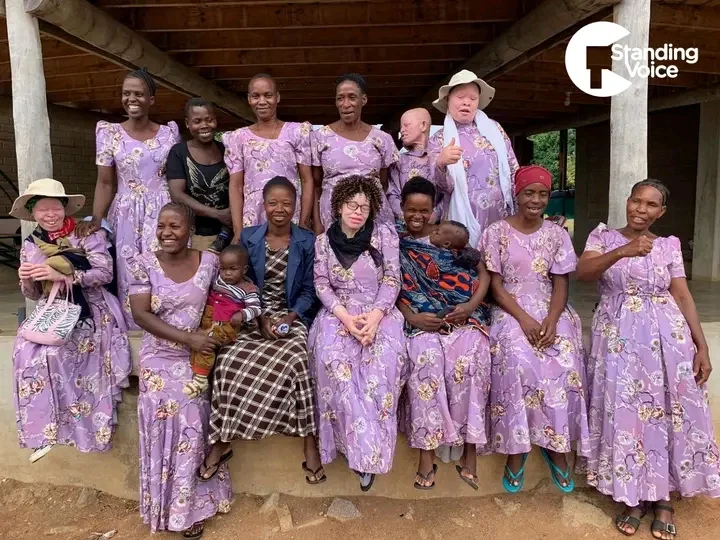
The project participants represent diverse cultural backgrounds, fostering the spirit of ubuntu, a South African philosophy that emphasizes interconnectedness and humanity. Their music addresses critical social issues, mobilizing youth towards positive change and promoting social cohesion.
The Musicians with Disability and Albinism Project successfully created jobs for 40 participants, both disabled and living with albinism. Furthermore, by utilizing local businesses for services like transportation and catering, the project generated indirect economic benefits for the community.
Standing Voice and The Musicians with Disability and Albinism Project offer a compelling vision for the future of albinism in Africa. Through healthcare, education, economic empowerment, and artistic expression, these initiatives are breaking down barriers and promoting inclusion. Their work paves the way for a future where people with albinism are not just accepted, but celebrated for their unique qualities and contributions to society.
By: Yahuza Bawage
If you enjoyed reading this article, be sure to check out this other fascinating piece!
For the latest updates, Download P+us app available on Google App Store
Featured
World Autism Awareness Day 2024
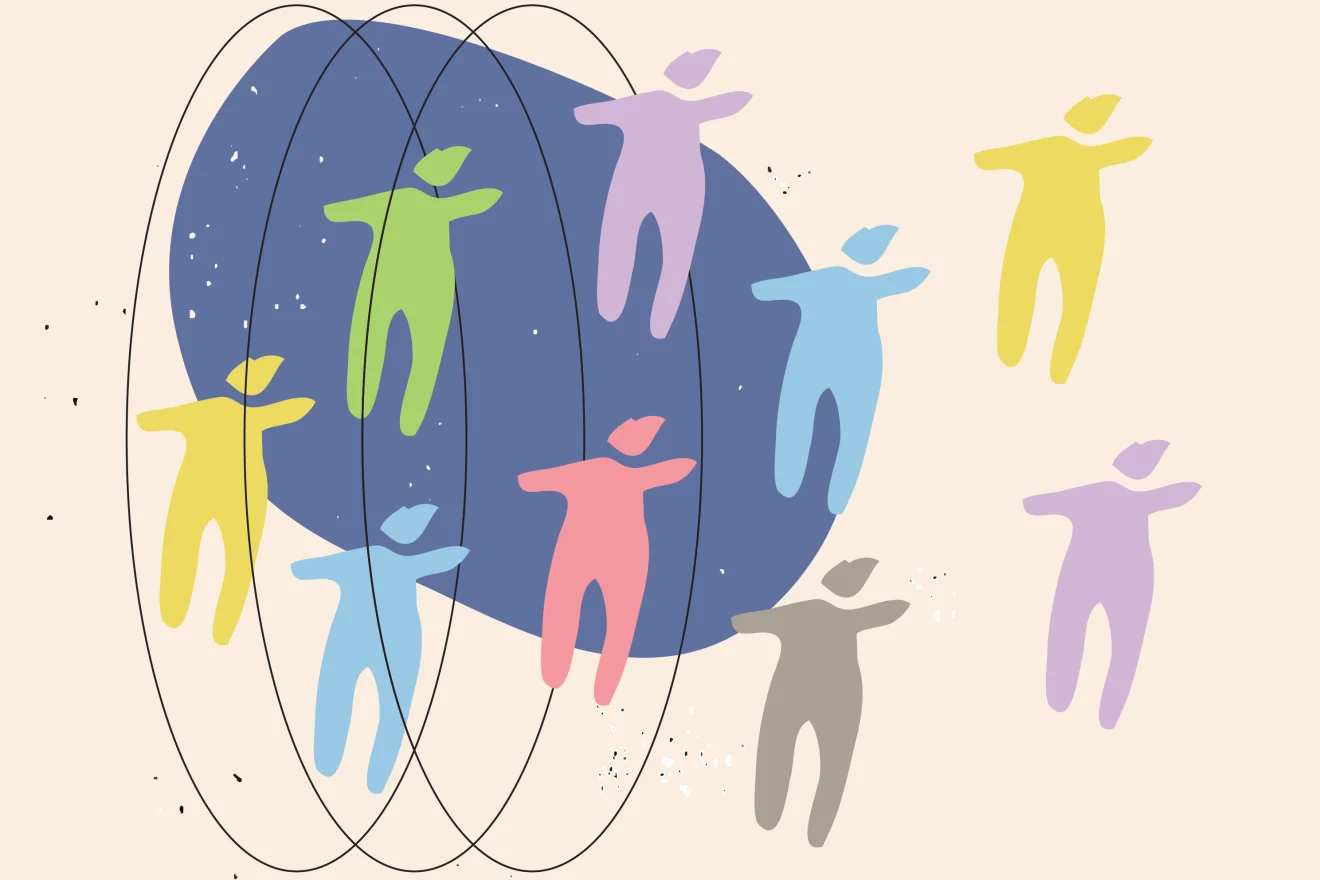
On April 2nd, World Autism Awareness Day is commemorated with a singular purpose: to raise visibility for individuals with Autism Spectrum Disorder (ASD) and their families, while simultaneously promoting respect and the full exercise of their rights.
In recent years, there has been significant progress in raising awareness and acceptance of autism. Much of this progress is attributed to the tireless efforts of advocates who have shared their lived experiences as autistic individuals. Additionally, health professionals, researchers, and academics have embraced the paradigm of neurodiversity a concept coined by sociologist Judy Singer in the late 1990s.
This approach diverges from the notion of “curing” or “changing” autistic individuals and instead focuses on acceptance, support, and inclusion. Neurodiversity recognizes the natural variation among brains and advocates for a more inclusive and respectful perspective toward people on the autism spectrum.
The United Nations General Assembly unanimously proclaimed April 2nd as World Autism Awareness Day. The day aims to remind society of the importance of enhancing the quality of life for individuals with autism and facilitating their full integration into social fabric.
This year’s theme is “From Survival to Prosperity: Autistic People Exchange Ideas About Their Region.” For the first time, a truly global vision is sought, conveying the state of neurodivergent individuals and their allies worldwide. To achieve this, autistic experts from various professions and social conditions will convene at the United Nations headquarters to share their experiences and work toward implementing the Sustainable Development Goals (SDGs) with the goal of improving the quality of life for autistic individuals.
United Nations. (2024, 2 abril). (Part 1) Autism Awareness Day – Africa & Asia: Moving from Surviving to Thriving | United Nations [Vídeo]. YouTube.
In this article, we will highlight some of the profiles that will attend this meeting. Thanks to their participation, they will positively contribute to the lives of many people.
Charlotte Valeur, Denmark/U.K.
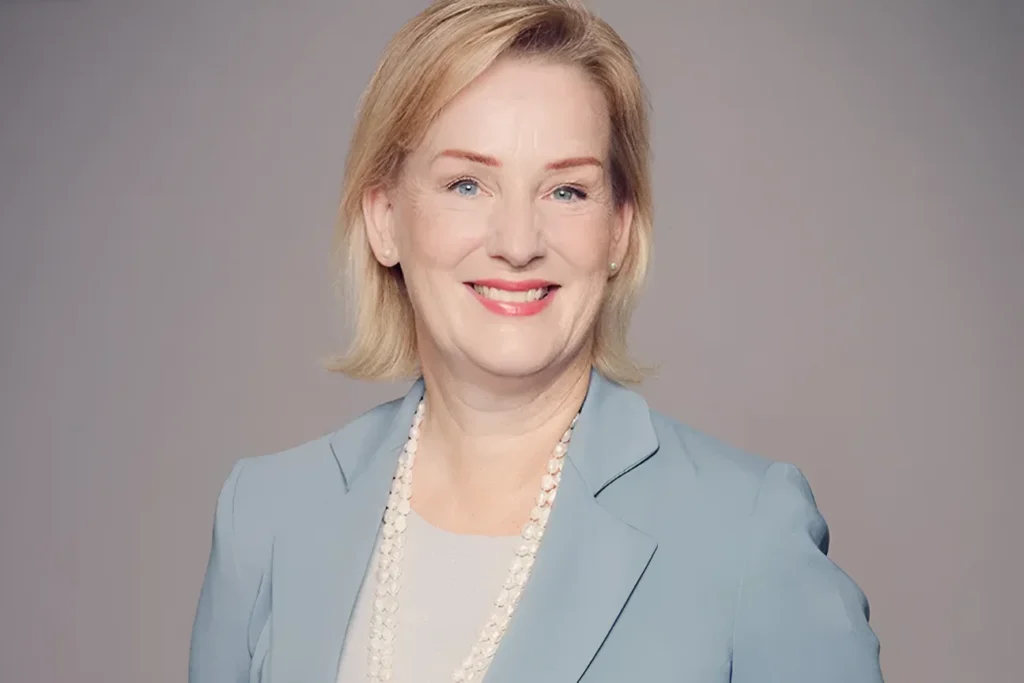
Charlotte Valeur/ Sofia Harkin
Charlotte Valeur, with over 35 years of finance experience, began her career as an investment banker in Denmark and the UK. She excels as an FTSE Chair, Non-Executive Director, and corporate governance expert. Through her company, Global Governance Group, she provides training and advisory services. Charlotte has directed eight public companies, including overseeing an $8 billion merger. She also contributes to unlisted firms, such as Laing O’Rourke and the Institute of Neurodiversity (ION), which she founded and chairs.
Matthew Punter, U.K.
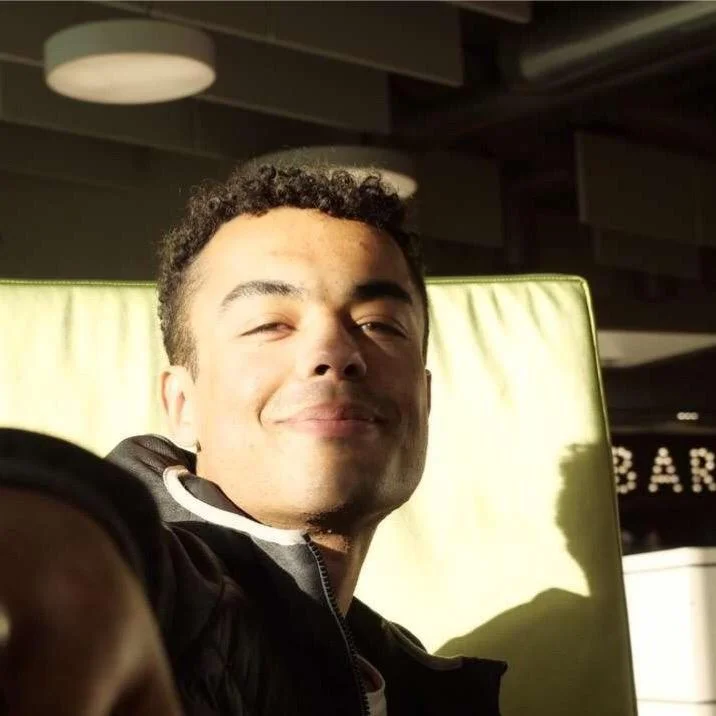
Mattew Punter/ linkedin.com/in/matthew-punter-968bba21a
Matthew Punter, a first-year psychology PhD student at the University of Bath in the U.K., is dedicated to addressing the employment gap for individuals with autism. With funding from the Centre for People-Led Digitalization, he focuses on digital solutions. Despite being labeled the “Worst Kid from Leicester,” Matthew returned to education at 17 after a decade-long hiatus. He swiftly acquired basic literacy skills and independently prepared for university admission, ultimately receiving offers from both Cambridge and Bath. Matthew now embraces the unique aspects of his neurodiverse experience, aiming to show that differences are not dysfunctional. His goal is to highlight the potential of those on the spectrum rather than their challenges.
Dr. Patrick Druggan, Scotland

Figure 2Patrick Druggan / linkedin.com/in/dr-patrick-druggan-2806786
Patrick Druggan hails from Glasgow and pursued his education there. His upbringing was marked by challenges: his father worked as a laborer, while his mother toiled in a biscuit factory. At school, Patrick faced daily corporal punishment from the age of six until he turned fourteen. Despite being labeled as “lazy” due to his reading difficulties and disruptive behavior, Patrick possessed a keen eye for spotting teachers’ errors.
Later in life, at the age of 32, Patrick’s journey took an unexpected turn. He embarked on a part-time Ph.D. program, focusing on something he had invented. His dedication bore fruit, resulting in the submission of four patents stemming from his doctoral research. But the story doesn’t end there. In his fifties, Patrick received additional diagnoses: dyslexia, ADHD, and autism. These revelations shed light on his unique perspective and strengths, emphasizing that our differences can be sources of innovation and resilience. Patrick’s journey exemplifies the power of determination and the ability to overcome obstacles, even when faced with adversity.
Lara Schaeffer, United States
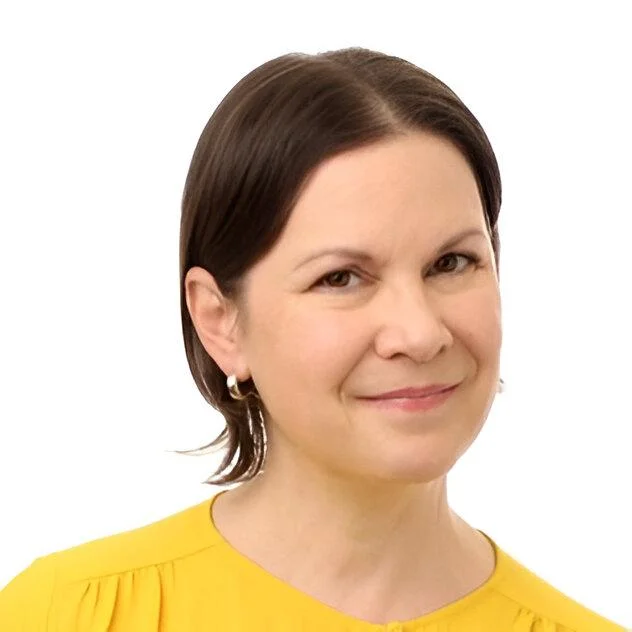
Figure 3Lara Schaeffer / https://www.linkedin.com/in/laraschaeffer/
Lara Schaeffer, a late diagnosed autistic individual, is the founder of Autism Discovery. In response to the various challenges associated with standard autism assessment such as cost, access, wait times, and inherent bias, she has pioneered Guided Self-Assessment for Adults. Lara not only mentors late-diagnosed autistic teenagers and adults but also advocates passionately for autism awareness. Her journey began when she received her own autism diagnosis at the age of 47, shortly after her daughter’s diagnosis during her teenage years. Through her online blogs and an active public speaking schedule, Lara continues to champion the cause and support fellow late identified autistic individuals while promoting self-diagnosis and identification.
By: Álvaro Lago
For latest updates Download P+us app available on Google App Store

